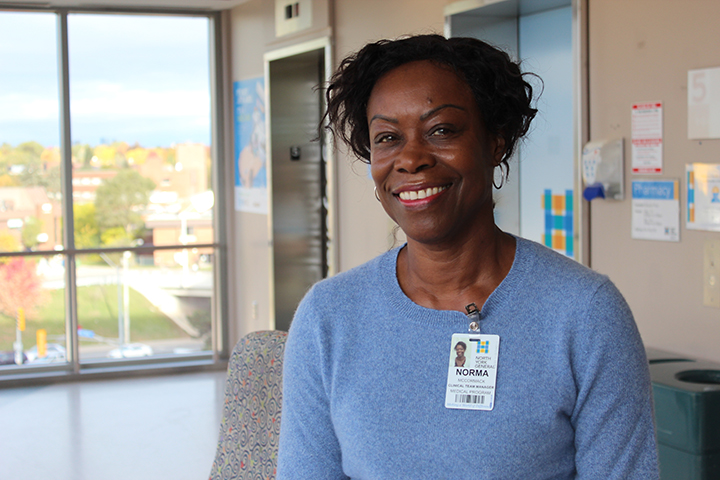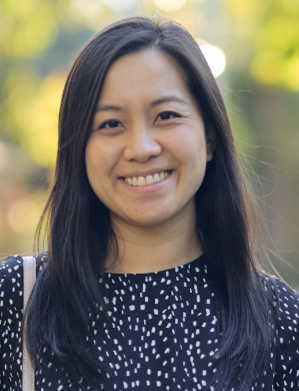North York General Hospital introduces team of advocates to improve sickle cell awareness and care

The pain shot through Natasha McPherson’s entire body. It was so unrelenting and intense that the 34-year-old could barely move.

“I was feeling severe pains everywhere and it was not getting any better. Eventually, I had no choice but to go to the ER,” said Natasha, a Toronto resident.
These episodes of severe pain are common for people with sickle cell disease. The hereditary condition is characterized by the presence of abnormal, crescent-shaped red blood cells that become hard and sticky restricting blood and oxygen from reaching other parts of the body. This blockage causes people to experience excruciating and sudden episodes of pain (some compare it to the pain experienced during childbirth). Over time, the disease will cause severe damage to the organs and may cause stroke, lung problems and even premature death.
“Many times, people don’t believe me, or they can’t understand when I tell [health care providers] that I am in extreme, intolerable pain and that I need stronger pain medication. I feel judged. I feel like nobody is truly listening to me,” said Natasha.
Sickle cell disease largely affects black and racialized people from Africa, the Caribbean Mediterranean, the Middle East, South America, and South Asia. In Ontario, an estimated 3,500 individuals live with sickle cell disease.
“Many people with sickle cell disease experience discrimination when they seek medical treatment, with some health providers labelling them as drug seekers,” says Dr. Jocelyn Ma, a hospitalist and physician advocate on the Sickle Cell Working Group at North York General Hospital (NYGH).

“The disease primarily affects Black and racialized people,” continues Dr. Ma. “System discrimination and socio-economic factors such as unstable employment negatively impact people’s lived experiences with chronic illnesses like sickle cell disease. Taken together, these factors can affect a provider’s perception of sickle cell patients and even inhibit a patient’s ability to access a well-supported, follow-up care plan for when they return to the community.”
Improving awareness and training for Sickle Cell Disease is a key focus of a new initiative led by NYGH’s Sickle Cell Working Group, which aims to improve care and outcomes for patients with the disease. The initiative involves Sickle Cell Advocates and consists of nurses, physicians and other health care professionals with advanced knowledge and training in Sickle Cell Disease.
“As a Sickle Cell Advocates, our role is to support patients by helping to bridge the knowledge gap about the disease and the most effective treatments,” says Norma McCormack, Clinical Acute Care Manager and a Sickle Cell Advocate at North York General Hospital.
“So when a person arrives at the emergency room in severe pain, there’s now a process in place that triggers a coordinated response within the hospital to ensure these patients receive compassionate, evidence-based care.”
This process involves first prompting a consult order for a Sickle Cell Advocate to be involved with a patient’s circle of care. This happens automatically when a sickle cell order set is started by the attending physician.
A Sickle Cell Advocate then visits the patient to discuss their experiences, health recovery goals and to determine any other supports the patient may require with the patient’s consent.
If the patient is transferred out of the Emergency Department, the order set is updated to show the location of the receiving unit, making it easy for the advocate to locate the patient.
“Sickle Cell Advocates are also available to answer questions about Sickle Cell Disease as requested by our health care providers,” adds Norma. “They will also help organize more formal sessions for a department if desired.”
For Natasha, having access to an experienced team of Sickle Cell Advocates is a blessing.
“Having an Advocate is important because they can advocate for me and educate other health care providers about my disease and the care that I need.”
